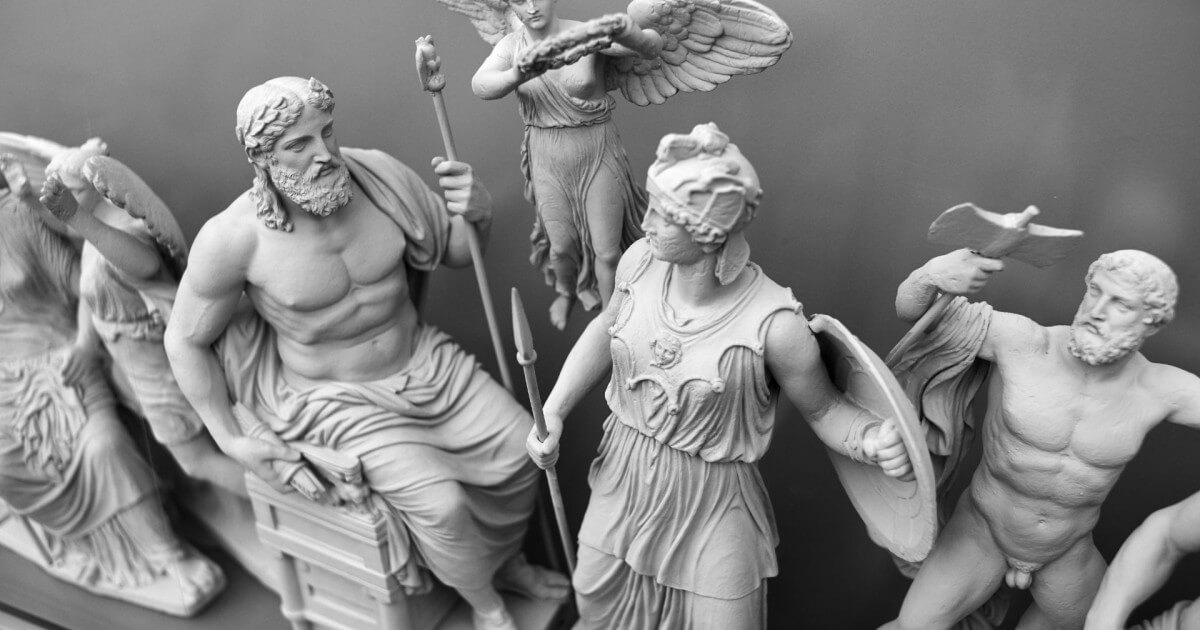Greek mythology, with its pantheon of gods, epic tales, and poignant narratives, has profoundly influenced global culture, shaping everything from literature and art to psychology and everyday speech. This collection of myths, developed by the ancient Greeks, centers around a variety of divine entities and heroic figures such as Zeus, Athena, Hercules, and Achilles.
These stories, originally transmitted orally and later written down by poets like Homer and Hesiod, explore themes of human nature, the struggle between fate and free will, and the relationship between mortals and the divine.
The impact of Greek mythology is evident in many areas of modern life. In literature, these myths have inspired countless works from Shakespeare’s plays to modern novels and films. Characters like Odysseus and themes from Greek tragedy appear frequently in contemporary storytelling, underscoring the universal and timeless appeal of these ancient tales.
In the realm of the arts, Greek mythology has been a wellspring of inspiration for painters, sculptors, and musicians. The Renaissance period, in particular, saw a revival of these myths, which were depicted in countless artistic works that celebrated humanism and the rediscovery of classical learning.
In psychology, Greek myths have influenced the development of psychoanalytic theory, with figures such as Sigmund Freud and Carl Jung using mythological characters to explain complex concepts about the human mind. Terms like “Oedipus complex” and “Electra complex” are direct borrowings from Greek mythology, reflecting the deep psychological insights these ancient stories provide.
Additionally, the language and symbols of Greek mythology have permeated everyday life, with many English words and expressions—such as “titanic,” “narcissistic,” and “Achilles’ heel”—originating from these myths.
The legacy of Greek mythology is also visible in educational curricula worldwide. It is not uncommon for students to study Greek myths from elementary school through university, learning not only about the stories themselves but also about their influence on Western thought and culture. This educational focus underscores the foundational role of Greek mythology in shaping the principles of Western philosophy, political theory, and artistic expression.
Moreover, Greek mythology has significantly impacted the world of entertainment, from Hollywood films to video games. Movies like “Clash of the Titans” and video games such as the “God of War” series have brought the dramatic and fantastical elements of these myths to a broad audience, blending ancient stories with modern technology and storytelling techniques.
In religious and philosophical contexts, the myths have been analyzed for their spiritual meanings and moral lessons. Philosophers have often used these myths to explore human experiences and values, leading to various interpretations that link ancient mythological narratives to contemporary existential and ethical questions. This reflective engagement with Greek myths continues to influence modern spiritual and philosophical inquiries.
The depiction of Greek mythology in art has been particularly influential. During the Renaissance, artists such as Botticelli and Michelangelo turned to Greek myths, producing works that remain iconic. Botticelli’s “The Birth of Venus” and Michelangelo’s “Bacchus” are just two examples of how these ancient stories were reimagined in visually stunning forms that captured the human experience and divine influence as conceived in Greek mythology.
The continuation of this tradition can be seen in the works of later artists like Jean-Auguste-Dominique Ingres and Gustave Moreau, whose interpretations brought new life and context to these ancient narratives. To find out more about the most famous Greek mythology paintings and their lasting influence on art, find out more here.
In conclusion, Greek mythology remains a pivotal force in cultural development around the world. Its stories and characters have not only enriched the arts and literature but have also provided important insights into human nature and societal values. As these myths continue to be explored and reinterpreted, their impact on global culture persists, proving the enduring power of these ancient narratives to inspire, educate, and provoke thought across different eras and cultures.

